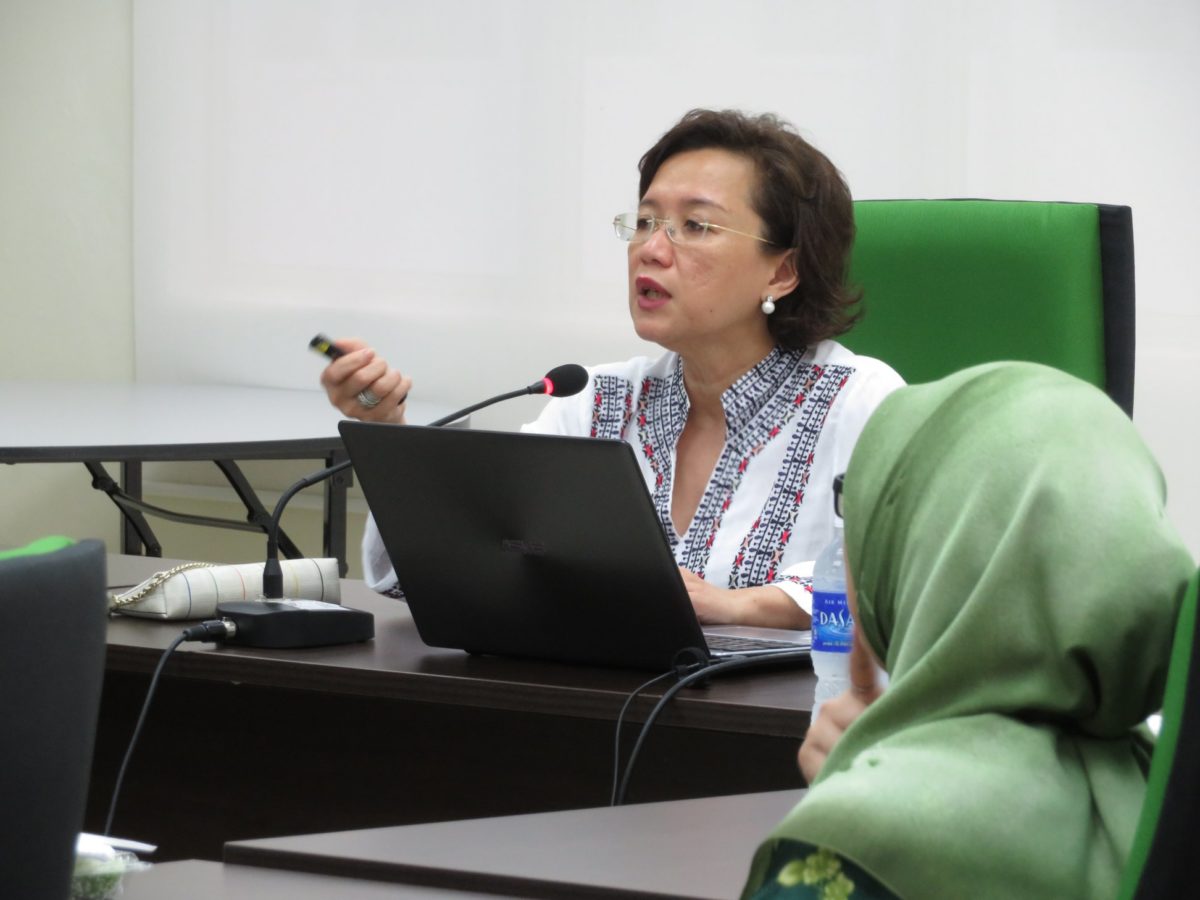KUALA LUMPUR, April 6 – Malaysia’s health care system must be prepared to provide greater care needs for the elderly community as the country is transitioning into an ageing nation, said infectious disease expert Prof Dr Adeeba Kamarulzaman.
Dr Adeeba said that the Covid-19 pandemic has amplified the strain on the current health care system, especially with rising chronic illnesses and an ageing population.
“The elderly are disproportionately vulnerable,” Dr Adeeba said at the Malaysian Hybrid Conference on Healthy Ageing (MCHA) on March 15.
“Our health care system must surely learn to adapt and prepare for greater care needs with considerations for their population’s age structure.”
According to the 2020 census, Malaysia’s population aged 65 years and above grew from 5 per cent in 2010 to 6.8 per cent in 2020, with 2.2 million people in that age group.
Dr Adeeba emphasised the significance of promoting a healthy lifestyle among elderly people in the country as one of the key preventive measures to reduce the strain on health care services.
She said that this would also help to reduce the mortality rate among the elderly if the world experiences any other pandemics in the future.
Dr Adeeba pointed out that the Covid-19 mortality rate among those aged above 65 was exponentially higher compared to younger adults in all parts of the world.
As a result of putting together global data, the impact of Covid-19 on the elderly is actually many, many times worse than was expected or understood in the early parts of the pandemic.
Dr Adeeba, who cited an article from The Atlantic, noted that people aged above 65 years were at least 65 times more likely to die from Covid-19, compared to persons aged from 18 to 29.
The risk of Covid-19 mortality was even higher among those aged above 75 and 85. The former group of people were at least 140 times more likely to die, whereas the latter was 340 times more likely to die from Covid-19, compared to persons aged from 18 to 29.
The Atlantic referred to the “Risk for Covid-19 Infection, Hospitalisation, and Death By Age Group” statistics released by the United States’ Centers for Disease Control and Prevention (CDC).
Dr Adeeba cited weak immune systems among elderly persons as one of the major reasons that contributed to the high number of Covid-19 deaths in this group.
“It’s not just Covid-19. Obviously with all infections, our immune system becomes weaker as we age to withstand the onslaught of pathogens organisms, whether it’s bacteria or viruses.”
Besides that, Dr Adeeba noted that cytokine storms in the body have also been the key factor in high Covid-19 mortality among elderly people.
Cytokine storm, or hypercytokinemia, is a severe immune reaction when the body produces too many cytokines into the blood rapidly. Cytokine is a type of protein, made by several cells of the immune system, that has an effect on the immune system.
“We know that ageing leads to chronic inflammation, which is also seen in conditions like diabetes and obesity, and when you have an infection like SARS-CoV-2 infection that triggers the immune system.”
This scenario will not just result in acute respiratory distress syndrome (ARDS) but also some other pathological changes, including thromboembolism, or blood clots.
“The cytokine storm is particularly we saw a lot of that during the Delta surge is one of the main reasons why elderly people, obese people and people with diabetes, have a worse outcome.
“As individuals age, they also have these comorbidities, whether it’s diabetes or obesity, and all this together leads to this horrific outcome that we’ve seen in the elderly, both here in Malaysia and globally.”
The ratio of health personnel and residents is limited in nursing homes, according to Dr Adeeba.
Lack of personal protective equipments (PPE), swab tests, absence of prompt health care guidelines to minimise infection spread, and the absence of nurses due to sick leave, mandatory quarantine, or fear of working without appropriate PPE, contributed to a rise in Covid-19 cases among elderly persons.
As of January 31 this year, in the US, more than 200,000 individuals, including residents and staff in long-term care facilities, have died due to Covid-19. That is approximately 23 per cent of the total Covid-19 deaths in the country.
In Hong Kong, Covid-19 deaths in elderly care homes comprised 60 per cent of coronavirus-related deaths in the city since the emergence of Omicron wave this year, with the majority comprising vaccine-hesitant elderly people.
Dr Adeeba also shared disheartening incidents in Universiti Malaya Medical Centre (UMMC), where elderly people infected with Covid-19 died alone due to isolation restrictions.
“It was not difficult for the dying persons but also the family members and to a large extent the staff.”
Dr Adeeba said that unvaccinated elderly people face significantly higher risk of Covid-19 illness, who are at least four times more likely to be infected and “many times” more likely to be hospitalised or to succumb to the disease.
“You can see how vaccination has been truly a game changer in terms of turning around this terrific pandemic in the last two years. So of course, we must do all we can to make sure that all our elderly are not only vaccinated, but also boosted.”
Dr Adeeba acknowledged that the Sinovac Covid-19 vaccine is a “little less effective” compared to Pfizer-BioNTech’s mRNA shot.
She cited a study that she conducted with data from the Ministry of Health (MOH) and said: “It shows that the adjusted age, adjusted mortality rate is increasing in people who receive the Sinovac vaccine and I could spend hours talking about this.
“Basically, it’s a three-dose vaccine and the fourth dose is a booster, whereas the mRNA vaccine is a two-dose vaccine.
“The mRNA vaccine has been shown to be more effective than the Sinovac, so for those of you who just had two doses of Sinovac, I really, really urge you to get a third dose if you haven’t already.”








